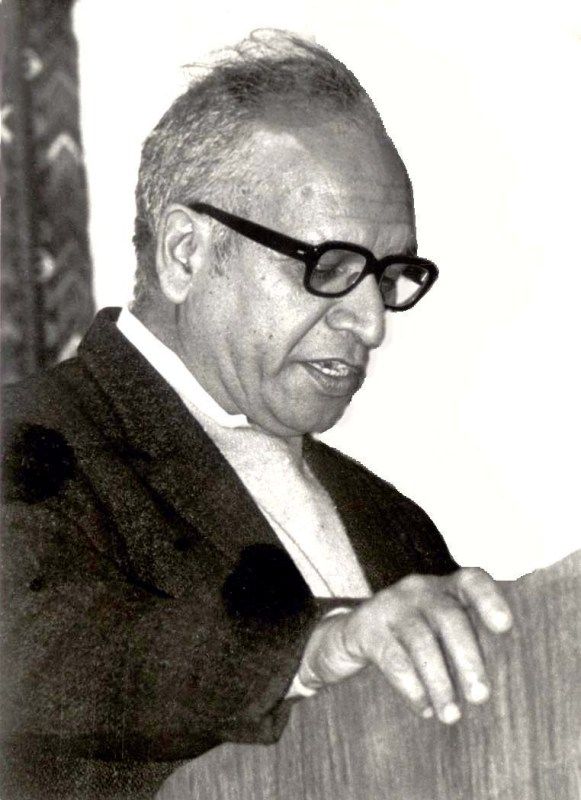Bipan Chandra was a famous Indian writer, historian and professor. He is considered one of the eminent Indian historians. He is known for his famous book ‘India’s Struggle for Independence’. He specialized in modern Indian history. His first publication was ‘The Rise and Growth of Economic Nationalism in India: Economic Policies of Indian National Leadership, 1880–1905’, published in 1966. Bipan Chandra’s last published book was ‘The Making of Modern India: From Marx to Gandhi, Orient Blackswan’. ” in 2000.
Contents
Wiki/Biography
Bipan Chandra was born on Saturday, 24 May 1928 (age 86 at the time of death) in Kangra, Punjab, British India (now in Himachal Pradesh, India). His zodiac sign was Gemini. Bipan Chandra, Emeritus Professor of Modern History at Jawaharlal Nehru University, was an Indian writer, teacher and a leading historian. During the Indian independence movement, Chandra was an active participant in the movement. He was a great scholar and writer, who wrote many books on Mahatma Gandhi. Bipan Chandra graduated from Forman Christian College, Lahore in 1946. After that, he earned a master’s degree in History from Stanford University, California, United States in 1949. He has a Ph.D. Received. degree from Delhi University in 1963.
Physical Appearance
Hair Color: Black
Eye colour: black
family and caste
Bipan Chandra was born in a Sood family.
wife and children
Bipan Chandra’s wife’s name was Usha Chandra and the couple had two children.
livelihood
Lecturer/Professor
Following Chandra’s alleged association with Marxists in the United States, Senator McCarthy campaigned to have Bipan Chandra deported to India. Chandra returned to India in the 1950s, where he began teaching as a lecturer at the Hindu College of Delhi. Did. During this period, he also studied doctorate from Delhi University. His doctoral dissertation was titled ‘The Rise and Development of Economic Nationalism in India’, which restated the efforts of early patriots including Dadabhai Naoroji, RC Dutt and GV Joshi. These patriots started India’s anti-colonial struggle.

Bipan Chandra’s book The Rise and Growth of Economic Nationalism in India
Mr Chandra began teaching as a professor at Jawaharlal Nehru University in the 1970s, where he was declared “Professor Emeritus” after his retirement in 2007. In 1985, in Amritsar, Punjab, the Indian History Congress appointed Professor Bipan Chandra as its general president. , Bipan Chandra was honored as National Professor by the UGC in 1970. The National Book Trust appointed him as its Chairman, a position he held from 2004 to 2012.

Bipan Chandra, Chairman of the National Book Trust in 2008
Contribution to modern Indian history
Bipan Chandra started the magazine ‘Enquiry’ in the early 1950s and was a member of its editorial board for a long time. Chandra taught history at Delhi University for 43 years. The book ‘Communalism in Modern India (1984)’ was Chandra’s collected analytical work on communalism. Bipan Chandra wrote a monograph titled ‘In the Name of Democracy: JP Movement and the Emergency’ (2003), in which he linked past events in Indian history with the current affairs of modern India. In this monograph, he expressed his tense feelings towards the imposition of Emergency by Indira Gandhi between 1975 and 1977. The same monograph also states that many principles of the Constitution of India were violated by Jayaprakash Narayan’s movement supporting communal faces.

Book written by Bipan Chandra in the name of democracy
The NCERT curriculum, particularly the Modern Indian History textbooks for senior secondary schools in India, was written by Bipan Chandra. Many books for entrance papers of government jobs and competitive exams including UPSC were contributed by Bipan Chandra.

History of Modern India, book written by Bipan Chandra for UPSC exam
Bipan Chandra wrote a book titled “The Long Term Dynamics of the Indian National Movement” in which he said that-
The Indian National Movement led by the Indian National Congress was a people’s struggle for liberation and had much to offer the world in terms of bringing about social change and changes in the state structure, just like the British, French, Russian movements. , Chinese, Cuban and Vietnamese revolutions. Strategic exercise of Congress-led and Gandhi-directed national movement [has] Of a certain significance in world history is ‘the only real historical example of a semi-democratic or democratic-type state structure being replaced or transformed, with the broadly Gramscian theoretical perspective of a war of status being successfully practiced. The famous Italian Marxist Gramsci evaluated it as ‘the only possible strategy’ for social modification in the developed countries of the West.
‘Communalism in Modern India’ is one of the notable works of Bipan Chandra. He wrote ‘Communalism in Modern India’, a standard text for those who want to know and understand how communalism grew and spread in the late 19th century. It was originally focused on readers who wanted to raise their voice against communalism in India.

Communalism in Modern India, a revised book by Bipan Chandra
Contribution to Indian economic history
Bipan Chandra mainly brought economic history. He argued in one of his economic history writings that-
Colonialism did not lead to ‘partial modernization’ or ‘restricted development’ and whatever small spurt of development the colony experienced during the colonial period was not a major achievement. Result of colonialism, but this was a result of the breaking or ‘loosening’ of ties from the colonial hold, which occurred due to various crises faced by metropolitan countries such as the two world wars and the Great Depression.”
Categories: Biography
Source: vcmp.edu.vn
